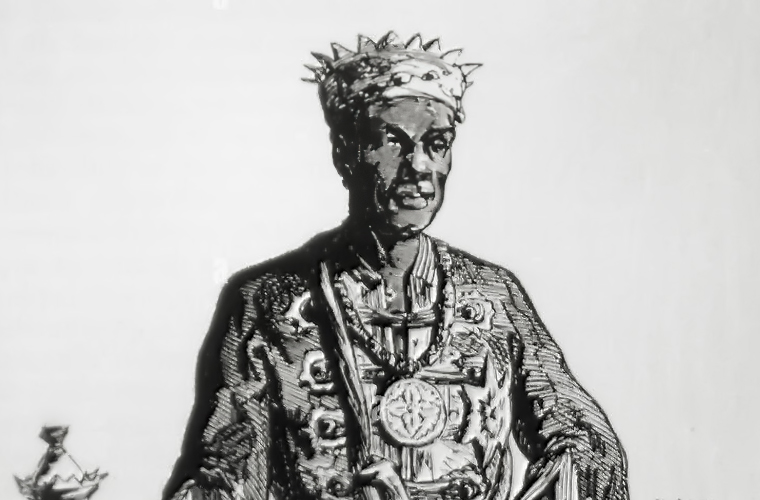King Gezo of Dahomey was a prominent figure in the history of the Kingdom of Dahomey, which existed in present-day Benin from the early 18th century until the late 19th century. As the ruler of Dahomey from 1818 to 1858, King Gezo played a crucial role in shaping the kingdom’s political and military landscape. Born in 1791, Gezo ascended to the throne following the death of his father, King Adandozan. From the outset, he faced numerous challenges, including internal power struggles and external threats from neighboring kingdoms and European powers. However, Gezo proved to be a skilled and resilient leader who successfully navigated these challenges and consolidated his authority over Dahomey.
One of Gezo’s most notable achievements was his efforts to modernize and strengthen Dahomey’s military. Recognizing the importance of a strong army in maintaining the kingdom’s independence, Gezo implemented various reforms that significantly enhanced Dahomey’s military capabilities. He expanded the army’s size, improved training and discipline, and introduced new weapons and tactics. Under Gezo’s leadership, Dahomey’s army became renowned for its effectiveness and discipline. The kingdom’s female warriors, known as the Amazons, played a particularly crucial role in Dahomey’s military success. Gezo recognized their skills and bravery and incorporated them into his army, making them an integral part of Dahomey’s defense strategy.
Gezo also sought to expand Dahomey’s influence beyond its borders. He engaged in diplomacy with European powers, including France and Britain, to secure trade agreements and establish alliances. These efforts allowed Dahomey to strengthen its economy and increase its access to European goods and technology. Gezo’s diplomatic skills were particularly evident in his negotiations with France, which resulted in the signing of the Treaty of Friendship and Commerce in 1851. Despite his successes, Gezo’s reign was not without controversy. The kingdom of Dahomey was known for its involvement in the transatlantic slave trade, and Gezo continued this practice during his rule. While some argue that Gezo’s participation in the slave trade was a necessary economic strategy to maintain Dahomey’s stability and power, others condemn it as a grave violation of human rights.
Gezo’s rule came to an end in 1858 when he died and was succeeded by his son, Glele. His legacy as a powerful and influential leader remains significant in the history of Dahomey. King Gezo’s military reforms and diplomatic efforts laid the foundation for Dahomey’s continued existence as a sovereign kingdom until its eventual colonization by France in the late 19th century. In conclusion, King Gezo of Dahomey was a skilled and influential ruler who played a crucial role in shaping the history of the Kingdom of Dahomey. His military reforms, diplomatic efforts, and leadership skills contributed to Dahomey’s strength and stability during a time of internal and external challenges. While his involvement in the transatlantic slave trade remains a controversial aspect of his reign, Gezo’s legacy as a powerful leader is undeniable.

